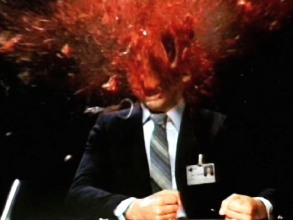 Do we have free will? To some, the answer is yes, obviously we have free will. Many others say not so fast. It’s a thorny question that has only grown thornier over the past 30 years. That’s because we’re no longer focused so much on whether an external agent or force determines what we do. Now it’s an internal agent or force we’re concerned about—namely the unconscious part of our brain.
Do we have free will? To some, the answer is yes, obviously we have free will. Many others say not so fast. It’s a thorny question that has only grown thornier over the past 30 years. That’s because we’re no longer focused so much on whether an external agent or force determines what we do. Now it’s an internal agent or force we’re concerned about—namely the unconscious part of our brain.
It’s probably apparent to most of us that we spend at least part of our time on autopilot—that is, behaving automatically, not consciously registering much of what’s going on around us, or not experiencing a sense of volition or agency. Stimulus A (whether internal or external) triggers reaction B. But the growing consensus of neuroscientists and others is that we spend not only part of our time, but most of our time, on autopilot. Some have tried to make the case that all of our behavior is automatic.
On the one hand, it’s hard to let go of the notion that we have complete control over our every thought, word, feeling, and deed. On the other, that’s a lot of responsibility and a tough row to hoe. The fact that, no matter what we think—or want to think—we don’t always feel in control sets up a conflict we’ve come up with some ingenious methods to resolve.
System 1, our unconscious, keeps us alive, filters what gets into conscious awareness, and initiates most of our thoughts, feelings, and behaviors. System 2, consciousness, very often just goes along with System 1’s recommendations. But not always. System 2 is capable of initiating thoughts and actions on its own, apart from what System 1 suggests. It can also veto System 1’s suggestions.
So one answer to the question about whether or not we have free will is “yes and no.” When it comes to habits, routines, or anything else System 1 is responsible for—when we’re operating on autopilot—we aren’t really acting freely. But when System 2 gives critical attention to System 1’s suggestions and either vetoes or sanctions them—or when System 2 initiates thoughts or actions of its own—we can say that we are acting freely.
There may be no outside agent forcing us to behave a certain way. But since we normally don’t consider the unconscious to be part of “I”—who we think of when we think about who we are—the unconscious feels quite a bit like an “other.” System 1 may be my brain, but it sure doesn’t feel like me.
“Yes and no” seems to be the best answer to the question of whether or not we have free will. It’s important to recognize the situations in which we operate on autopilot because if we think we’re making choices and acting freely when we’re not, we’ll be less likely to look for effective methods to change behavior we want to change, and we won’t be able to see things from any perspective other than our habitual one.
At the same time, if we don’t recognize the situations where we have the capacity to make decisions and act freely, not only will we be in trouble, society and the entire human race will be in trouble, too. Or is this just the norm—part of the human condition?
What do you think?



